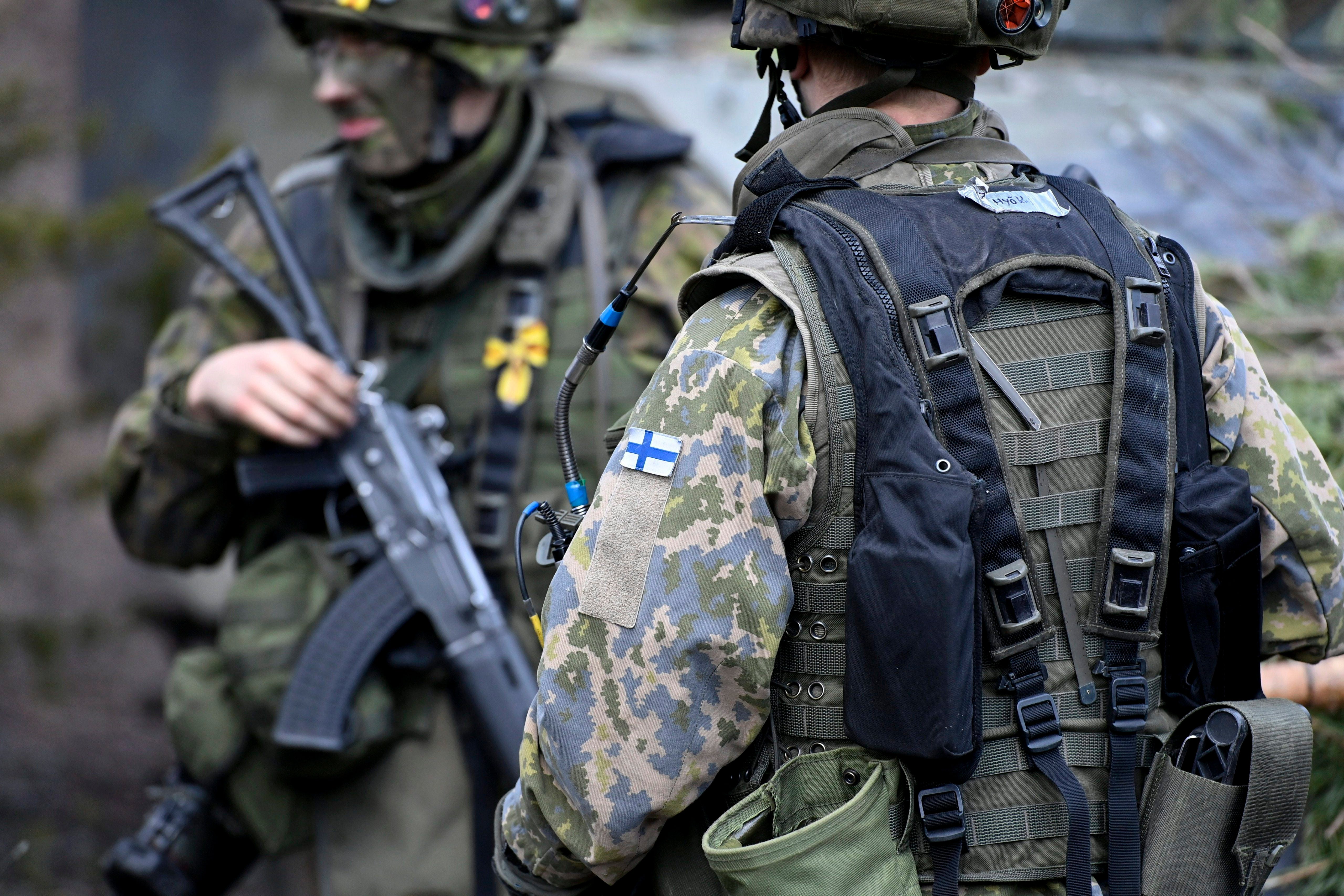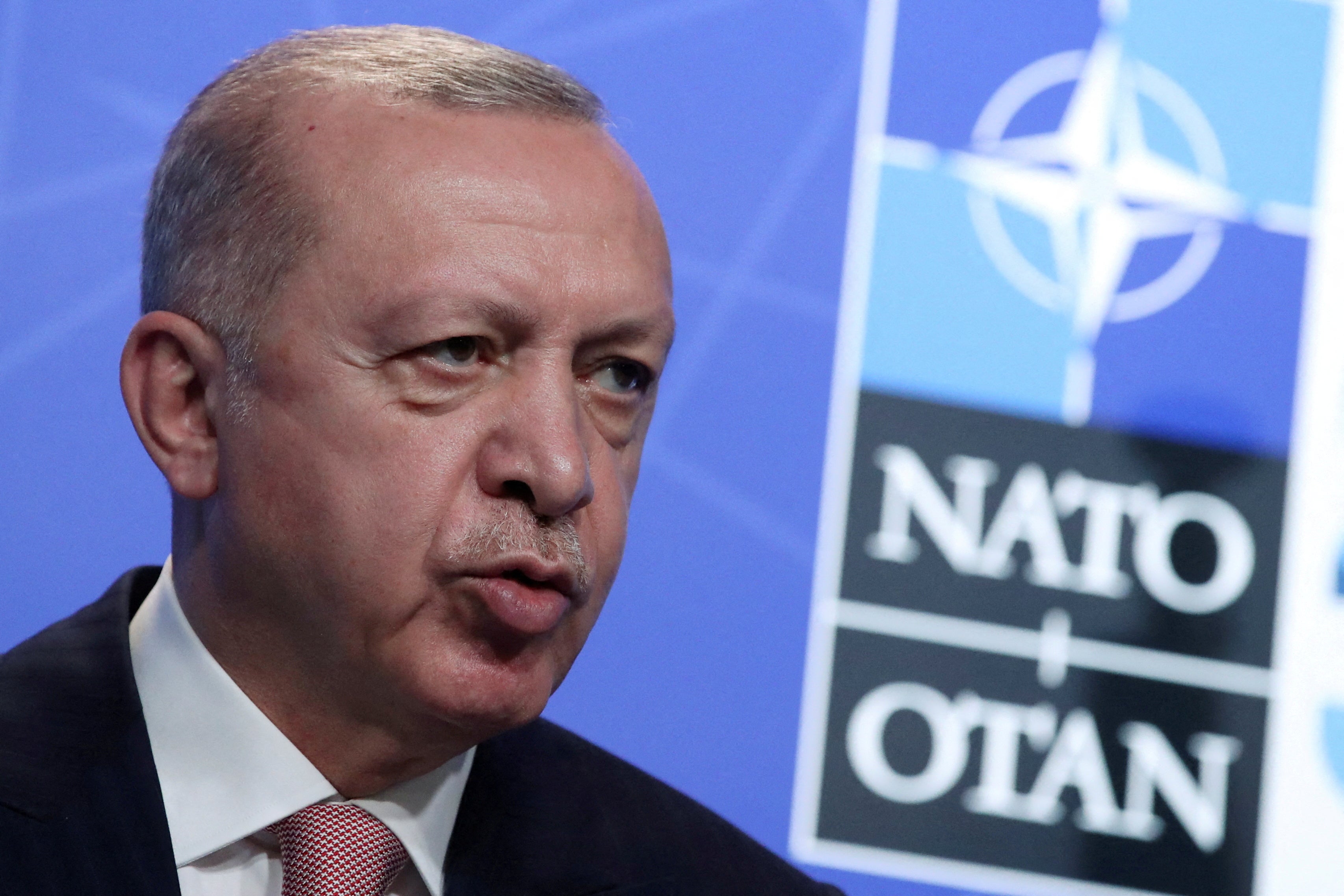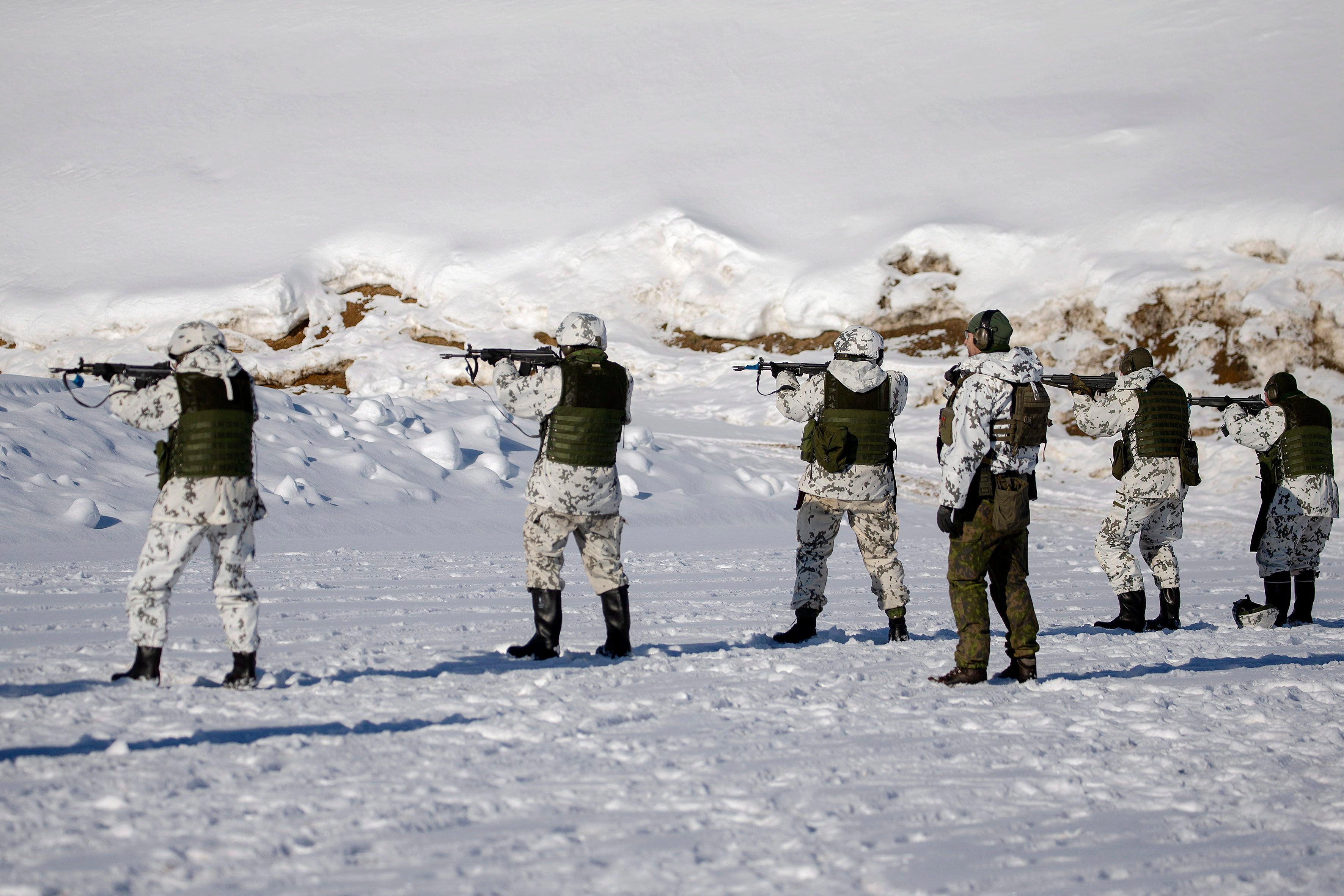Why Turkey could spoil the Nato party for Sweden and Finland
Erdogan could veto expansion, but must make careful choices over Putin’s threats, says Sean O'Grady


In a move that is causing almost as much joy and excitement as the Eurovision Song Contest, Finland and Sweden want to join Nato. They are, to use the securocrat euphemism, net security providers – a big bonus to Nato’s military capability, rather than a burden of commitment (not that there’s anything wrong with that – small nations have rights, too).
There is talk of fast-track applications and of Nato being open to all geographically relevant nations. The Finns and Swedes, having had to develop their own defences during years of neutrality, are bristling with advanced kit and well-drilled troops. They are already part of the British-sponsored Joint Expeditionary Force, and are participating in yet more military exercises in Estonia under the code name Hedgehog. Even outside Nato, they’d give the Russians a run for their money, just as the Ukrainians are.
Then along comes Recep Tayyip Erdogan, president of Turkey and sworn member of the global authoritarian awkward club. A loyal Nato country since 1952 (it even hosted American nuclear missiles until the Cuba crisis in 1962), Turkey has become less and less reliable. President Erdogan has rained on Nato’s parade, making negative noises about the prospective Scandinavian members – particularly the way these liberal democracies have offered asylum to Kurdish groups such as the Kurdistan Workers’ Party (PKK), regarded by Ankara as terrorists.
A delegation from Sweden is heading to Turkey to try to allay fears. Extraordinarily, Erdogan even described Greek membership as a historical mistake by Nato, taking the opportunity for a swipe at a long-standing foe.

So far, Turkey has avoided threatening an explicit formal veto on Nato’s northern expansion. It seems unlikely in the current situation that Turkey would wish to alienate the United States and most of the European Union – its most valuable economic partners, as well as being the main guarantors of Turkish security against Russia, and of peace in the eastern Mediterranean and Cyprus. Rather, it feels very much as though Turkey is seeking something in return for allowing the Swedes and Finns into the club. Turkey is understandably frustrated about its long-stalled application to join the EU, which has been on the table since 1961. It has used migration in recent years as leverage for more EU trade and assistance.
Unlike the EU, Nato has no formal accession criteria – except consensus – and if Turkey was reluctant over Sweden and Finland, it would be in a minority of one. It also has to balance its regional interests, and ask itself some hard questions about how contented it would be with Russia dominating the northern Black Sea and extending its influence ever further into the Caucasus. Erdogan has been markedly more sympathetic and neutral in his stance on Ukraine, and has tried to broker peace talks, straining his relations with America and the EU.

Erdogan is a hard man, like Putin, and suspicious of democracy and western liberal values; but at the same time, Russia and Turkey are ancient rivals, and have fought wars and proxy wars with one another over centuries. In recent times, the occasional incursion of a jet into each other’s airspace has caused severe diplomatic tensions and threats of escalation.
One day, Turkey might be grateful for the backing of Nato, America and the EU in some face-off with Putin. In such circumstances, a consignment of Swedish Saab fighter jets and some Finnish armoured vehicles would be more than welcome.



Join our commenting forum
Join thought-provoking conversations, follow other Independent readers and see their replies
Comments